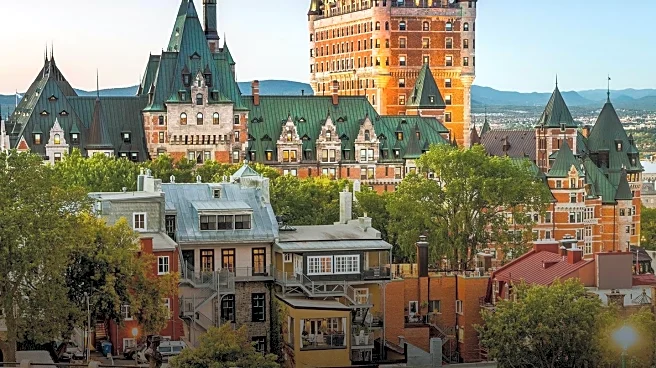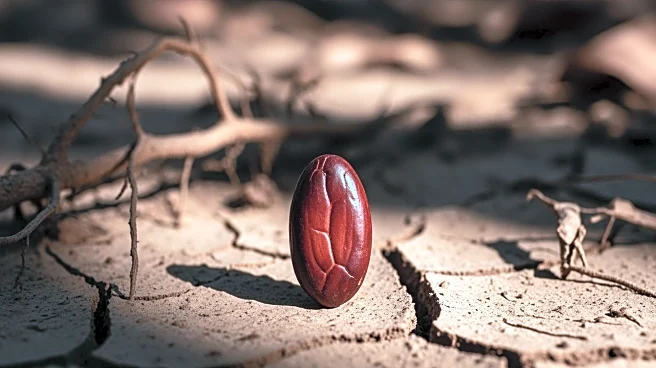What's Happening?
The Egremont Crab Fair, a historic festival in Cumbria, has crowned new world champions in the unique sport of gurning. The event, which dates back to 1267, features the gurning world championship, a tradition since the 1500s. This year's champions include Ryan Barton and Lynn Proctor in the adult categories, and Kendall in the junior category. Despite the festival's long history, it has only been canceled three times, twice due to the coronavirus pandemic and once following the death of the Queen. The event faced challenges this year due to heavy rain, which affected visitor numbers and revenue. Organizers, however, remain committed to continuing the tradition, with plans already underway for next year's event.
Why It's Important?
The Egremont Crab Fair is a significant cultural event, highlighting the unique traditions and community spirit of Cumbria. The gurning championship, in particular, draws participants and spectators from around the world, contributing to local tourism and the economy. The event's resilience, despite weather-related setbacks, underscores the community's dedication to preserving its cultural heritage. The fair not only provides entertainment but also fosters a sense of identity and continuity for the residents of Egremont and the surrounding areas.
What's Next?
Organizers are already planning for next year's Egremont Crab Fair, despite the financial hit from this year's weather-affected event. Efforts will focus on fundraising to ensure the continuation of the fair and its unique traditions. The community's commitment to the event suggests that it will remain a fixture in the cultural calendar, with potential for increased international interest and participation in future years.
Beyond the Headlines
The Egremont Crab Fair and its gurning championship offer a glimpse into the cultural diversity and eccentricity that can be found in local traditions across the UK. The event's ability to attract global attention highlights the universal appeal of unique cultural practices. It also raises questions about the preservation of such traditions in the face of modern challenges, such as climate change and economic pressures.










